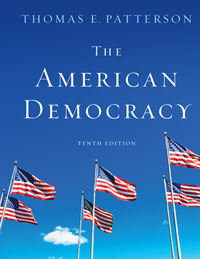| balanced budget | The situation when the government’s tax and other revenues for the year are roughly equal to its expenditures.
|
 |
 |
 |
| budget deficit | The situation when the government’s expenditures exceed its tax and other revenues.
|
 |
 |
 |
| budget surplus | The situation when the government’s tax and other revenues exceed its expenditures.
|
 |
 |
 |
| capital-gains tax | The tax that individuals pay on money gained from the sale of a capital asset, such as property or stocks.
|
 |
 |
 |
| demand-side economics | A form of fiscal policy that emphasizes “demand” (consumer spending). Government can use increased spending or tax cuts to place more money in consumers’ hands and thereby increase demand.
|
 |
 |
 |
| deregulation | The rescinding of excessive government regulations for the purpose of improving economic efficiency.
|
 |
 |
 |
| economic depression | A very severe and sustained economic downturn. Depressions are rare in the United States; the last one was in the 1930s.
|
 |
 |
 |
| economic efficiency | An economic principle holding that firms should fulfill as many of society’s needs as possible while using as few of its resources as possible. The greater the output (production) for a given input (for example, an hour of labor), the more efficient the process.
|
 |
 |
 |
| economic equity | The situation in which the outcome of an economic transaction is fair to each party. An outcome can usually be considered fair if each party enters into a transaction freely and is not unknowingly at a disadvantage.
|
 |
 |
 |
| economic recession | A moderate but sustained downturn in the economy. Recessions are part of the economy’s normal cycle of ups and downs.
|
 |
 |
 |
| economy | A system for the exchange of goods and services between the producers of those goods and services and the consumers of them.
|
 |
 |
 |
| externalities | Burdens that society incurs when firms fail to pay the full costs of production. An example of an externality is the pollution that results when corporations dump industrial wastes into lakes and rivers.
|
 |
 |
 |
| fiscal policy | A tool of economic management by which government can attempt to maintain a stable economy through its taxing and spending policies.
|
 |
 |
 |
| graduated (progressive) personal income tax | A tax on personal income in which the tax rate increases as income increases; in other words, the tax rate is higher for higher income levels.
|
 |
 |
 |
| inflation | A general increase in the average level of prices of goods and services.
|
 |
 |
 |
| laissez-faire economics | A classic economic philosophy holding that owners of business should be allowed to make their own production and distribution decisions without government regulation or control.
|
 |
 |
 |
| monetary policy | A tool of economic management based on manipulation of the amount of money in circulation.
|
 |
 |
 |
| national debt | The total cumulative amount that the U.S. government owes to creditors.
|
 |
 |
 |
| regulation | A term that refers to government restrictions on the economic practices of private firms.
|
 |
 |
 |
| supply-side economics | A form of fiscal policy that emphasizes “supply” (production). An example of supply-side economics is a tax cut for business.
|





